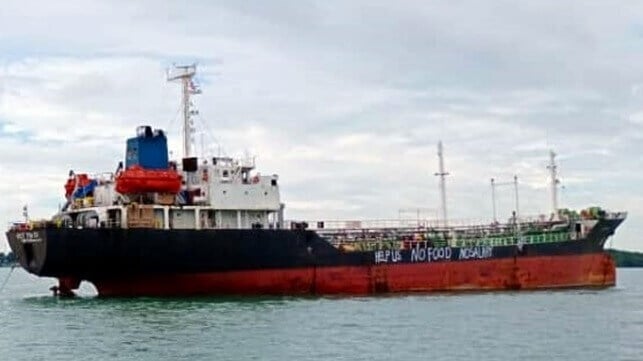Vessel and Crew Abandonment Surge in 2025 on Course for Worst Year

The abandonment of vessels and their crews is running significantly ahead of the rate in 2024 and is on track to a new record warns the International Transport Workers’ Federation. The association of transport unions is reiterating its long-standing call for more action and a crackdown both on shipowners and the registries that fail to respect seafarers.
“Abandonment is a growing, systemic problem,” said Stephen Cotton, ITF General Secretary. “Behind every number is a human being who has been failed by the industry and the governments responsible for regulating it. The fact that we're on track to break last year’s appalling record is a sign that urgent reform is needed.”
The ITF calculates that vessel abandonment is up 33 percent year-over-year in 2025. It says as of May this year it had recorded 158 cases of vessel abandonment, up from 119 at the same point in 2024. These cases represent more than 1,501 seafarers who have reached out to the ITF for assistance, many of whom were left unpaid, without food, water, or access to ports, often for months at a time.
They highlight in 2024 its inspectors and teams were able to recover $13.5 million for abandoned seafarers. Last year, it said there was a record 3,100 seafarers abandoned. In total, the ITF reports in 2024 it recovered more than $58.1 million in unpaid wages due to seafarers. Already in 2025, they report ITF inspectors have helped to recover $4.1 million for seafarers affected by abandonment.
“We’re dealing with owners who walk away from their obligations, often while sub-standard registers look on and do nothing,” said Steve Trowsdale, Head of the ITF Inspectorate. “In many cases, it's impossible to identify the owner, and flag states are either unwilling or unable to act. This is what makes the rise in cases so dangerous – impunity is growing across the board.”
As the number of cases climb, the ITF says it is increasingly concerned by the limits on enforcement. It calculates that half of the world’s fleet operates under a “flag of convenience,” and notes that more than 80 percent of abandoned vessels are also operating under a flag of convenience. The ITF highlights that it has a list of 45 countries that provide a flag of convenience. It added Tuvalu and Guinea-Bissau to its list of problematic registries that lack enforcement along with the 2024 addition of Gabon and Eswatini. In 2023, it added San Marino to the target list.
The group is calling for reforms to the registry system to ensure that every vessel can provide transparent, traceable links to its beneficial owner. The ITF says registries must be “armed – and willing – to detain and penalize those who walk away from their crews.”

that matters most
Get the latest maritime news delivered to your inbox daily.
The leading members of the International Maritime Organization have also raised concerns about the proliferation of suspect flags that do not properly enforce regulations. In addition, the U.S. Federal Maritime Commission just over a week ago announced that it was starting an investigation into these registries. It, too, cited the lack of regulations and enforcement saying it had the potential to create unfavorable conditions in the foreign trade of the United States.
While the Maritime Labor Convention stipulates basic standards for wages and transportation for seafarers to and from their ships and homes, enforcement remains a problem. Flag states have a legal responsibility when vessel owners and operators abandon their crews or fail to pay their wages and provide basic welfare conditions. States such as Australia highlight their efforts during port state inspections, but frequently it falls to the unions and charities to aid abandoned seafarers.
